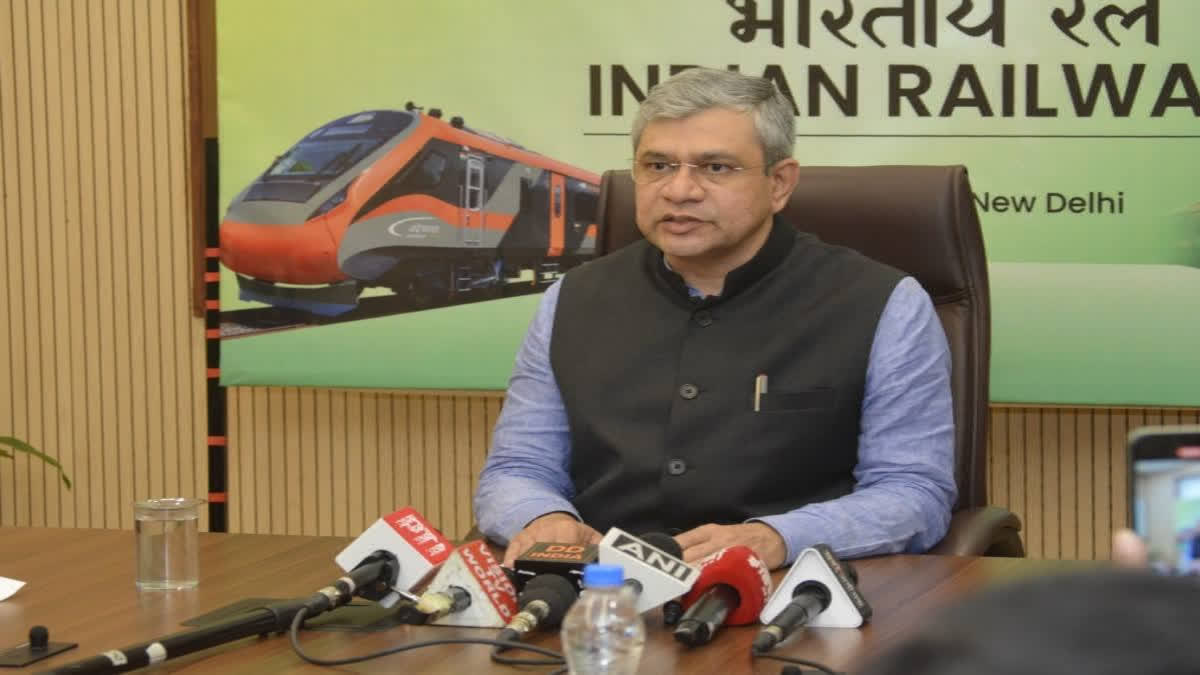New Delhi: The Union Cabinet, chaired by Prime Minister Narendra Modi, on Friday approved the continuation and restructuring of the Central Sector Scheme ‘Skill India Programme (SIP)’ till 2026 with an overlay outlay of Rs 8,800 crore from the period 2022-23 to 2025-26.
Addressing the media persons, Union Minister Ashwini Vaishnaw said this approval underscores the government’s commitment to building a skilled, future-ready workforce by integrating demand-driven, technology-enabled, and industry-aligned training across the country.
“Pradhan Mantri Kaushal Vikas Yojana 4.0 (PMKVY 4.0), the Pradhan Mantri National Apprenticeship Promotion Scheme (PM-NAPS), and the Jan Shikshan Sansthan (JSS) Scheme – the three key components, are now combined under the composite Central Sector Scheme of “Skill India Programme”.
These initiatives aim to provide structured skill development, on-the-job training, and community-based learning, ensuring that both urban and rural populations, including marginalized communities, have access to high-quality vocational education. Under the three flagship schemes of the Ministry of Skill Development and Entrepreneurship, there are more than 2.27 crore beneficiaries till date,” the Union Minister informed.
Pradhan Mantri Kaushal Vikas Yojana 4.0:
PMKVY 4.0 scheme provides NSQF-aligned skill development training through Short-Term Training (STT) including Special Projects (SP) and reskilling and upskilling through Recognition of Prior Learning (RPL) with its target beneficiary being 15-59 years of age. The Pradhan Mantri Kaushal Vikas Yojana 4.0 (PMKVY 4.0) has undergone transformational changes to make skill development training industry-oriented, aligned with national priorities with increased accessibility.
A key shift under the scheme is the integration of On-the-Job Training (OJT) within short-term skilling programs, ensuring that trainees gain real-world exposure and industry experience. To keep pace with evolving industry demands and the advent of new-age technology, 400+ new courses on AI, 5G technology, Cybersecurity, Green Hydrogen, and Drone Technology, have been introduced, focusing on emerging technologies and future skills.
The blended and flexible learning model now incorporates digital delivery, making training more flexible and scalable. To provide targeted, industry-relevant skills, enabling learners to upskill, reskill, and enhance employability in high-demand job roles, the program introduces micro-credential and National Occupational Standards (NoS)-based courses ranging from 7.5 to 30 hours.
To maximize cross utilization of existing infrastructure and to expand access to quality training, Skill Hubs have been established across premier academic institutions, including IITs, NITs, and Jawahar Navodaya Vidyalayas (JNVs), Kendriya Vidyalayas, Sainik Schools, Eklavya Model Residential Schools (EMRS), PM Shri Schools, Toolrooms, NILET, CIPET etc. PMKVY 4.0 ensures industry-aligned training with a curriculum available in multiple regional languages, making skilling more inclusive and accessible. Over 600 trainee and trainer handbooks have been translated into eight regional languages to enhance learning outcomes.
To strengthen quality training and assessments, a national pool of one lakh assessors and trainers is being developed, ensuring standardization and expertise across training centres. Industry partnerships ensure access to employment opportunities through Recruit Train Deploy (RTD) training.
Additionally, the scheme places a strong emphasis on international mobility, ensuring Indian workers are equipped with globally recognized skills. The Ministry has Mobility Partnership Agreements (MMPAs) and MoUs with various countries and has conducted necessary sectoral skill gap studies. Under the scheme, enablement of training in domain skills, joint certifications, language proficiency, and soft skills has been initiated to enhance the international mobility opportunities for our workforce.
PM National Apprenticeship Promotion Scheme (PM-NAPS):
The National Policy on Skill Development and Entrepreneurship, 2015 focuses on apprenticeship as one of the key components for creating skilled manpower in India. Apprenticeship training can play a major role for on-the-job vocational training where youth can acquire skills by working at actual workplace and earn some stipend, at the same time, to financially support himself.
Apprenticeship is considered, globally as well, as the best model for skill acquisition and earning while learning. The Pradhan Mantri National Apprenticeship Promotion Scheme (PM-NAPS) supports the seamless transition from education to work, ensuring apprentices gain industry-specific skills through real-world exposure.
To support both apprentices and establishments in India, 25 per cent of the stipend, up to Rs 1,500 per month per apprentice, will be provided through Direct Benefit Transfer (DBT) during the training period, provided by the Central Government. The scheme is designed for individuals aged 14 to 35 years, ensuring inclusive access to skill development opportunities across various demographics.
NAPS encourages apprenticeship opportunities in prevailing manufacturing including emerging fields such as AI, robotics, blockchain, green energy, and Industry 4.0 technologies. This aligns skilling initiatives with futuristic job markets and industry trend. The scheme also encourages enrolment of apprentices in small establishments especially Micro, Small and Medium Enterprises (MSMEs), and those located in the underserved areas such as aspirational districts and North-East Region.
Jan Shikshan Sansthan (JSS) scheme:
The Jan Shikshan Sansthan (JSS) scheme is a community-centric skilling initiative designed to make vocational training accessible, flexible, and inclusive, particularly for women, rural youth, and economically disadvantaged groups and caters to the age group of 15 -45 years of age. By delivering low-cost, doorstep training with flexible schedules, JSS ensures that skilling opportunities reach those who need them the most, fostering both self-employment and wage-based livelihoods.
Beyond skill development, the program plays a vital role in social empowerment, creating awareness on health, hygiene, financial literacy, gender equality, and education within communities JSS is linked with key initiatives of the Government like: PM JANMAN, Understanding of Lifelong Learning for All in Society (ULLAS), etc. to promote inclusive skilling.
Aligned with national frameworks, all certifications under the Skill India Program are mapped to the National Skills Qualification Framework (NSQF) and seamlessly integrated with DigiLocker and the National Credit Framework (NCrF), ensuring formal recognition of skills and enabling smooth transitions into employment and higher education.
With the continuation of the Skill India Programme, the government seeks to reinforce its commitment to lifelong learning, recognizing the importance of continuous upskilling and reskilling in today’s rapidly changing employment landscape. The initiative will directly contribute to the Periodic Labour Force Survey (PLFS) data, ensuring that workforce development policies remain aligned with economic and industrial trends.



